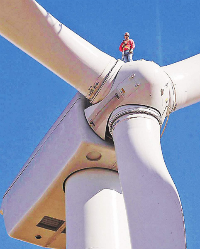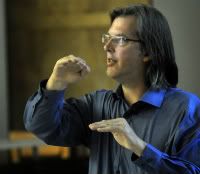Balancing Intelligence and Compassion with Personal Responsibility
Here’s a brief discussion between a reader and me on this article of which I present an excerpt:
Most of us are indebted slaves. Banks conjure money out of thin air to enslave most of us for life. We must go into debt to buy a house, a car or go to school. Many of us go into debt just to eat. Like you, you and you, I will carry my s***ty credit score to a mass paupers’ grave, with my hearse a U-Haul. There is a renewed emphasis on going to college as a means to success, but in this economy, a degree will likely only impoverish you further, since you will be in hock to the banksters even as you work a job completely unrelated to your dubious education. If you can even get a job, that is. Joining winos and bag ladies with smudgy and off-target makeup will be legions of useless scholars.
Reader: What do you think about this?
Craig: Who in his right mind granted this guy ten cents’ worth of credit in the first place? It’s an exercise in whining, over-generalizing, and shirking personal responsibility.
Reader: I fully agree – a kind of surrender.
Craig: Correct. It’s the only thing I find objectionable about the left. Liberal minds, it seems to me, are strong on compassion and intelligence, but can lack the understanding of the importance of personal accountability and self-determination. Humankind is, at the end of the day, a part of the animal kingdom. Life didn’t evolve over four billion years here on Earth by asking our fellows to fix our problems for us. And it’s not the way we’ll survive in the future.
If you have a useless education, go get a useful one.
I can only feel sorry for people who wake up in the morning without a purpose to go out and accomplish something, who blame others for their own condition.
What I’d like to see, having said all this, is the end of unfairness. How about justice, where all people, regardless of their backgrounds, can have equal access to opportunity? It sure would be nice to put an end to a world in which the rich use their wealth to purchase the justice system. I’m asking for a level playing field where all people have the chance to be healthy, educated, and productive. It’s a tall order, but one I think that, together, we can serve up.


 I hope you can join me for our webinar in March, in which I’ll interview Jim Greenberg, Chief Strategy and Marketing Officer of Ocean Thermal Energy Corporation. I first met Jim on my last trip to the East Coast, and I was immediately impressed with the executive team, the board of advisors, and the basic thoroughness and professionalism with which this organization forwards the OTEC concept.
I hope you can join me for our webinar in March, in which I’ll interview Jim Greenberg, Chief Strategy and Marketing Officer of Ocean Thermal Energy Corporation. I first met Jim on my last trip to the East Coast, and I was immediately impressed with the executive team, the board of advisors, and the basic thoroughness and professionalism with which this organization forwards the OTEC concept.



 I often write here that I’m never nasty or condescending to anyone who submits a business plan, regardless of how asinine their ideas. I have an admission to make: while that was true early, on, it’s no longer the case. Now, I get descriptions of perpetual motion machines and other theoretically impossible devices at the rate of approximately once a week. Each “inventor’ has one curious trait in common: he’s looking for that last couple hundred thousand dollars of investment capital to build a prototype.
I often write here that I’m never nasty or condescending to anyone who submits a business plan, regardless of how asinine their ideas. I have an admission to make: while that was true early, on, it’s no longer the case. Now, I get descriptions of perpetual motion machines and other theoretically impossible devices at the rate of approximately once a week. Each “inventor’ has one curious trait in common: he’s looking for that last couple hundred thousand dollars of investment capital to build a prototype.
